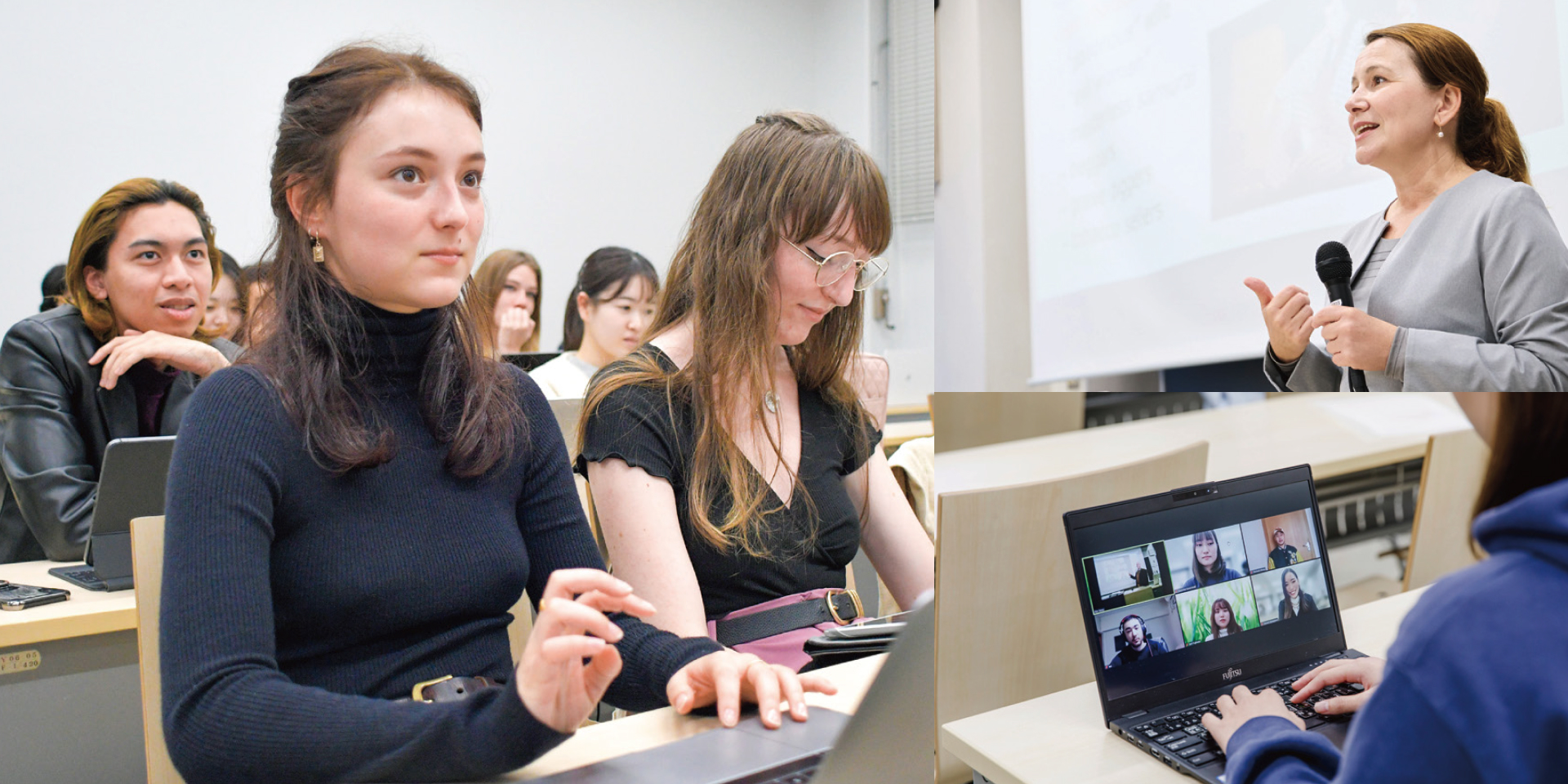Department of Global and Transcultural Studies
Department of International Studies
Department of Global and Transcultural Studies

Take Yourself Across the World
As society becomes increasingly globalized in the twenty-first century and the international environment undergoes dramatic changes, the Department of Global and Transcultural Studies is educating students who will excel in the global arena. The Department attracts students from Japan and other countries and offers a cosmopolitan environment. Our program develops advanced cross-cultural communication skills based on English proficiency, an interdisciplinary approach required for an accurate understanding of contemporary society, and the practical skills to actively contribute to solving a wide range of problems.
Department of Global and Transcultural Studies
Key Features of the Department of Global and Transcultural Studies
Program Structure
Topics
Admission Policy
Key Features of the Department of Global and Transcultural Studies
Point 01
A curriculum that develops global human resources
The Department of Global and Transcultural Studies offers a curriculum based on an interdisciplinary approach designed to give an accurate understanding of today’s global society. We foster global citizens who can flourish in careers with international agencies, global NGOs, and multinational corporations, or in fields such as journalism and the mass media.
Point 02
In principle, all classes are taught in English
The Department of Global and Transcultural Studies provides thorough English language education right from the time our students enter the university so that they can all receive specialized education in English. Subsequently, students may choose from some 78 lecture classes and 16 seminars and practical courses conducted in English, covering a broad range of subjects.
Point 03
Academic advisors provide support for long-term study abroad and internships in Japan and overseas
Under the academic advisor system, each student is assigned a faculty member who advises them on their learning program and can also help them create a plan for long-term study abroad and internships in Japan or overseas.
Point 04
The opportunity to attain a double degree from two universities
Under the double degree program, students in the Department may earn bachelor’s degrees from both Meiji Gakuin University and San Francisco State University. It takes five years on average to earn both bachelor’s degrees, including around two and a half years of study abroad.
Point 05
Internships that develop global competencies
The term “global competencies” refers to the skills, abilities and attitudes that enable individuals to work in a globalized society. Through internships in Japan and overseas, students acquire the ability to work alongside people with different values, and to think independently, solve any problems that may arise, and keep their stress levels under control.
Point 06
Our students come from diverse backgrounds
In addition to many students from Japan, the Department includes many who have foreign nationalities, who grew up abroad, and who studied at international schools in Japan. There are also exchange students from universities around the world. Our faculty members, too, have diverse backgrounds. In every class, students can thus experience a multicultural learning environment in a culturally and linguistically diverse community of faculty and students.
Program Structure
In the first three semesters after admission, students choose introductory courses in four fields—culture, society, politics, and economics—to acquire basic knowledge and academic skills. This equips them to receive authentic specialized education at various universities worldwide. From their fourth semester onward, our students receive a specialized education in Japan and abroad. They also participate in internships that may help them to shape their future careers.
Topics
Environmental Politics in Japan and East Asia
This course focuses on differences between East Asian and Northern European countries regarding their speed and efficiency in realizing the deployment of renewable energy deployment and decarbonization of their economies. We analyze political, economic, and social factors hindering the spread of renewable energy in Japan and other countries along with those accelerating its spread in some other countries.
Translation and Interpretation A・B
This is a practical course for students considering a career in translation or interpretation. Course A focuses on English–Japanese translation and interpretation, while Course B emphasizes Japanese–English translation and interpretation. The aim is to acquire the skills to translate swiftly and accurately from Japanese to English in both written and oral contexts.
